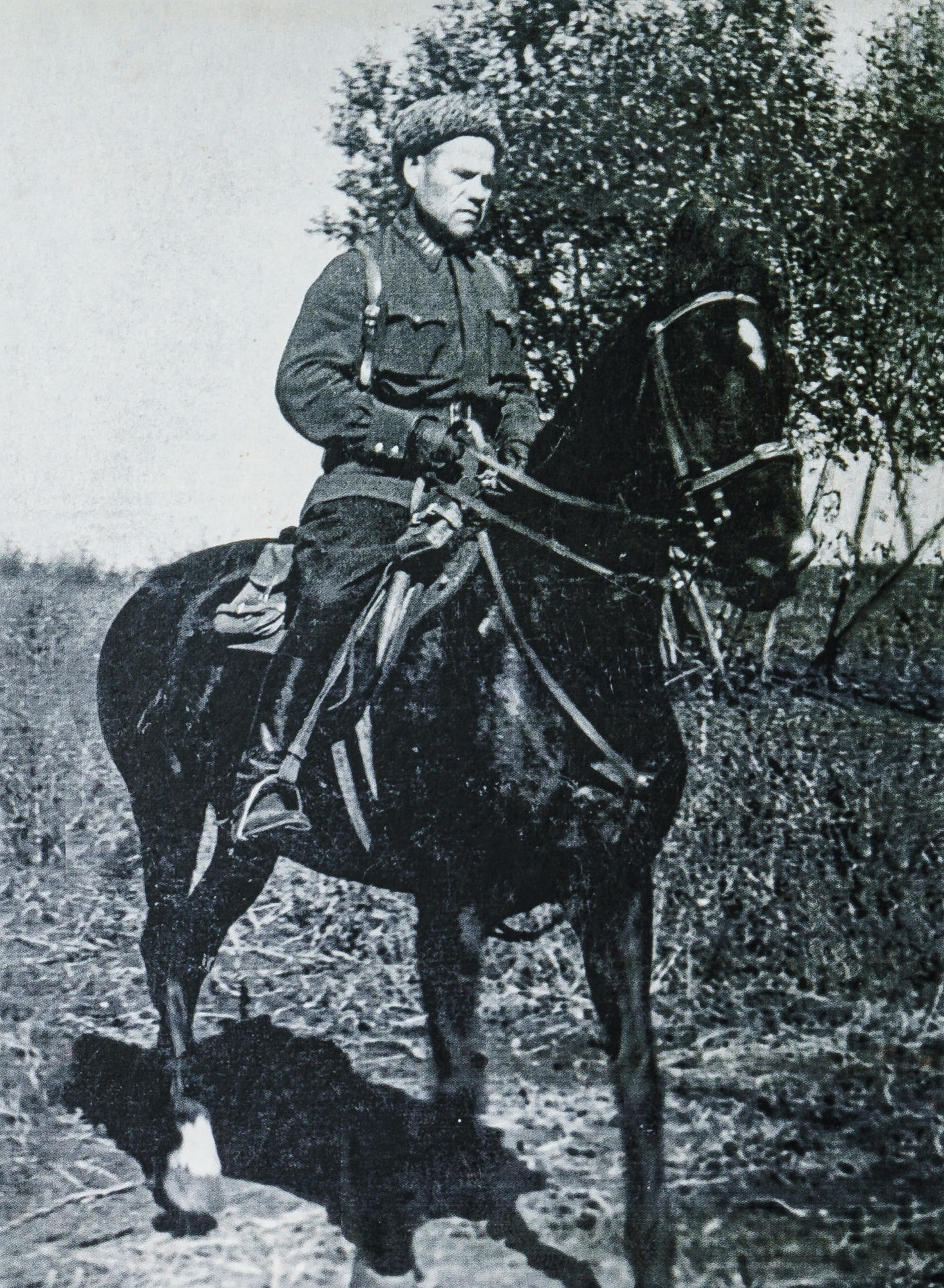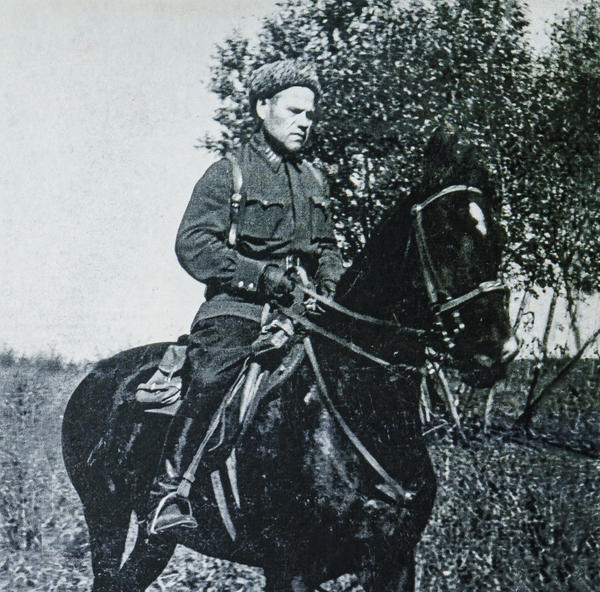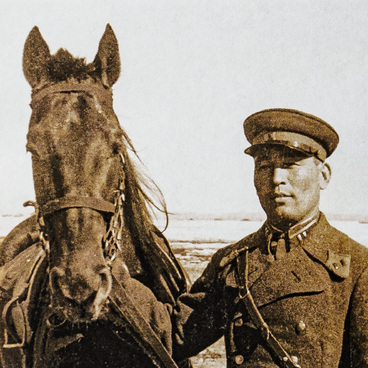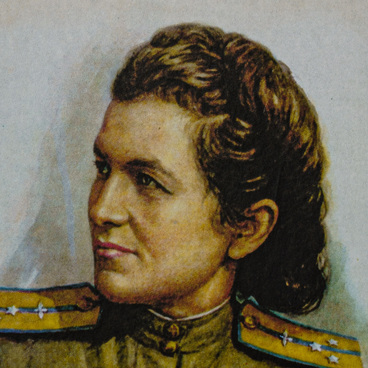Minigali Mingazovich Shaimuratov is a hero of the Civil and Great Patriotic Wars, a major general who commanded the 112th Bashkir Cavalry Division. He was born in 1899 in the village of Bishtyaki, Ufa province, in a poor family. According to fellow countrymen, even as a teenager he was known as the best horse rider in the area.
His military career began in the summer of 1919, a few months later Minigali Shaimuratov became commander of a Red Army squadron. The daring cavalryman happened to fight in the Volga region, Turkestan, on the Polish front, to take part in the assault on Perekop. For the capture of the leader of the gang, Commander of the First Cavalry Army Semyon Budyonny awarded Shaimuratov an engraved saber.
After the Civil War, Minigali Shaimuratov made an amazing military and diplomatic career. Since 1925, he commanded the Kremlin cavalry squadron, which at that time was engaged in the protection of the first persons of the state. In 1934, Shaimuratov, with the rank of captain, graduated with honors from the intelligence department of the Frunze Military Academy.
Minigali Mingazovich served as a military attaché in Turkey аor two years, and then was sent to China. Under the pseudonym ‘Shay’, he formed military units to fight the Chiang Kai-shek’s supporters and participated in fighting, in 1938 he was seriously wounded. In 1940, Colonel Shaimuratov once again headed the 1st Special Cavalry Regiment guarding the Kremlin.
During the war, this unit made a significant contribution to the defense of Moscow. With heavy snowfall, horses passed where vehicles could not reach. Cavalrymen were often used as shooters. They quickly reached the place of deployment, hid horses and took up positions.
In December 1941, General Shaimuratov was instructed to head the 112th Cavalry Division, the formation of which had already begun in Bashkiria. Locals have been able to handle horses since childhood, and many are even familiar with the basics of horse-riding necessary for a cavalryman. It took three months to complete the division and train personnel.
Even in the most difficult days of the Great Patriotic War, the divisional commander firmly believed in victory and maintained morale among his subordinates. The general strictly ensured that the cavalrymen examined the hooves of horses at each halt, and invariably repeated that the horseshoes must make it to Berlin. He led them into the attack with a cry: “Go ahead, sons of Salavat!” (Salavat Yulaev was an associate of Yemelayn Pugachev, leader of peasant rebellion in Russia).
The 112th Bashkir Cavalry Division successfully fought near Voronezh and Stalingrad. In the winter of 1943, immediately after the capture of Stalingrad, the Red Army High Command developed Operation Jump. In order to disrupt the enemy’s lines of supply, it was necessary to cut off the railway line Debaltsevo - Voroshilovgrad. The 8th Cavalry Corps, which included Shaimuratov’s division, was sent to raid behind German lines.
During the operation, the cavalrymen liberated about 100 villages. However, between the villages of Petrovskoye and Yulino in the Voroshilovgrad region, the corps was encircled. Shaimuratov’s division was the first to go for a breakthrough. The operation was scheduled for February 25, 1943. The general chose an officer and several soldiers, handed them the division flag and ordered them to get to Soviet troop dispositions. Then, unsheathing his saber, Minigali Shaimuratov personally led the cavalrymen in an attack.
Historians argue about what happened next. Some claim that the general died in battle, others that he died from severe wounds and torture several hours after being captured. The division had less than 1000 men left, but the flag was preserved, so it was not disbanded. The unit was transformed into the 16th Guards Division. Until the end of the war, its cavalrymen went on the attack with a battle cry: ‘Go ahead, Shaimurat fighters! ’
Today, Minigali Shaimuratov is one of the most revered folk heroes in Bashkortostan, about whom songs are composed. He was posthumously awarded the Order of the Red Star. His native village is called Shaimuratovo, it is here that there is a monument to the legendary divisional commander. A street in Ufa is named after him.
His military career began in the summer of 1919, a few months later Minigali Shaimuratov became commander of a Red Army squadron. The daring cavalryman happened to fight in the Volga region, Turkestan, on the Polish front, to take part in the assault on Perekop. For the capture of the leader of the gang, Commander of the First Cavalry Army Semyon Budyonny awarded Shaimuratov an engraved saber.
After the Civil War, Minigali Shaimuratov made an amazing military and diplomatic career. Since 1925, he commanded the Kremlin cavalry squadron, which at that time was engaged in the protection of the first persons of the state. In 1934, Shaimuratov, with the rank of captain, graduated with honors from the intelligence department of the Frunze Military Academy.
Minigali Mingazovich served as a military attaché in Turkey аor two years, and then was sent to China. Under the pseudonym ‘Shay’, he formed military units to fight the Chiang Kai-shek’s supporters and participated in fighting, in 1938 he was seriously wounded. In 1940, Colonel Shaimuratov once again headed the 1st Special Cavalry Regiment guarding the Kremlin.
During the war, this unit made a significant contribution to the defense of Moscow. With heavy snowfall, horses passed where vehicles could not reach. Cavalrymen were often used as shooters. They quickly reached the place of deployment, hid horses and took up positions.
In December 1941, General Shaimuratov was instructed to head the 112th Cavalry Division, the formation of which had already begun in Bashkiria. Locals have been able to handle horses since childhood, and many are even familiar with the basics of horse-riding necessary for a cavalryman. It took three months to complete the division and train personnel.
Even in the most difficult days of the Great Patriotic War, the divisional commander firmly believed in victory and maintained morale among his subordinates. The general strictly ensured that the cavalrymen examined the hooves of horses at each halt, and invariably repeated that the horseshoes must make it to Berlin. He led them into the attack with a cry: “Go ahead, sons of Salavat!” (Salavat Yulaev was an associate of Yemelayn Pugachev, leader of peasant rebellion in Russia).
The 112th Bashkir Cavalry Division successfully fought near Voronezh and Stalingrad. In the winter of 1943, immediately after the capture of Stalingrad, the Red Army High Command developed Operation Jump. In order to disrupt the enemy’s lines of supply, it was necessary to cut off the railway line Debaltsevo - Voroshilovgrad. The 8th Cavalry Corps, which included Shaimuratov’s division, was sent to raid behind German lines.
During the operation, the cavalrymen liberated about 100 villages. However, between the villages of Petrovskoye and Yulino in the Voroshilovgrad region, the corps was encircled. Shaimuratov’s division was the first to go for a breakthrough. The operation was scheduled for February 25, 1943. The general chose an officer and several soldiers, handed them the division flag and ordered them to get to Soviet troop dispositions. Then, unsheathing his saber, Minigali Shaimuratov personally led the cavalrymen in an attack.
Historians argue about what happened next. Some claim that the general died in battle, others that he died from severe wounds and torture several hours after being captured. The division had less than 1000 men left, but the flag was preserved, so it was not disbanded. The unit was transformed into the 16th Guards Division. Until the end of the war, its cavalrymen went on the attack with a battle cry: ‘Go ahead, Shaimurat fighters! ’
Today, Minigali Shaimuratov is one of the most revered folk heroes in Bashkortostan, about whom songs are composed. He was posthumously awarded the Order of the Red Star. His native village is called Shaimuratovo, it is here that there is a monument to the legendary divisional commander. A street in Ufa is named after him.



